Swiss special forces unit under fire
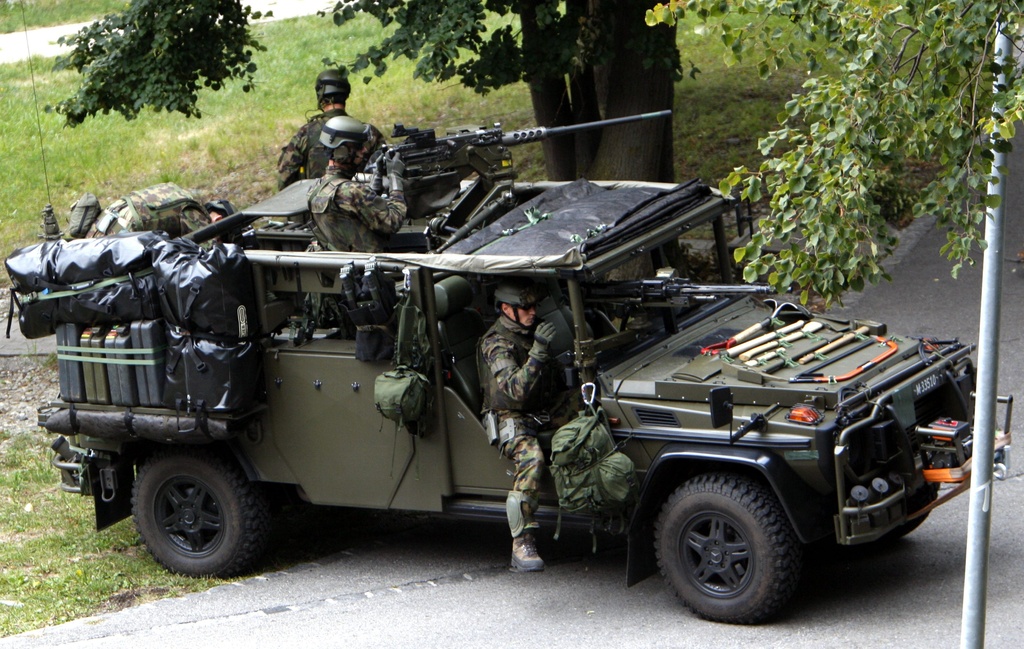
Switzerland’s elite special forces unit, whose mission is to protect Swiss troops and citizens abroad, is again in the spotlight and under pressure.
President Doris Leuthard last week confirmed Switzerland considered sending in “security forces” to rescue two of its citizens who were detained in Libya for more than a year. Some politicians say the “dangerous” commando unit, known as DRA10, should now be dissolved.
“It’s a military unit specially designed for interventions abroad. At the beginning we were told that it was just a unit to rescue Swiss taken hostage by terrorists. But we now see it’s a dangerous instrument,” former Justice Minister Christoph Blocher, now figurehead and chief strategist of the rightwing Swiss People’s Party, told Le Temps newspaper on Saturday.
“The plans were drawn up by amateurs and the consequences could have been catastrophic. We are calling for a stop to any [Swiss] military action abroad and the end of the DRA 10.”
Swiss media reported last week that the foreign ministry’s secret plans to use special forces or intelligence agents to free businessmen Rachid Hamdani and Max Göldi sparked controversy when they were disclosed to the cabinet.
President Doris Leuthard condemned the leaks to the media but said officials had rightly studied all options to get the men out of Libya.
“That the relevant authorities considered the possible use of security forces in a hostage situation is correct and cannot be criticised,” she told reporters in Bern on June 21.
But questions remain unanswered concerning which cabinet ministers knew what and when and how advanced the plans were.
Security report
At their general assembly in Delémont, canton Jura, on Saturday, People’s Party president Toni Brunner also attacked the elite force and said the party was ready to launch a people’s initiative to ban Swiss military interventions abroad.
The rightwing party is not alone in its criticism of the special forces. Green Party parliamentarian Jo Lang, who is also a member of the Switzerland Without an Army group, filed a proposal with a parliamentary security committee on Monday calling for the DRA 10 to be dissolved.
The DRA 10 is likely to be discussed this autumn when parliament debates the latest national security report, which the government approved last week.
The report, which establishes guidelines for better cooperation between cantonal and federal agencies, will help guide the future mandate of the Swiss army, which is scheduled to be unveiled in September.
But contrary to his own faction, the People Party, Defence Minister Ueli Maurer last week defended Switzerland’s elite troop force.
“It would not be called into question,” he told reporters. “A modern army has such units. Switzerland wanted troops capable of evacuating Swiss nationals abroad. Nothing has changed in that respect.”
But he admitted that the situation remained fluid and the unit would be merged with the grenadier guards and parachute regiment.
He recalled that under his predecessor, Samuel Schmid, DRA 10 had been trimmed from 90 members, as initially planned, to 40.
Atalanta
This is not first time the DRA 10, which has never seen active engagement, has been under pressure.
In September 2009 an anti-interventionist, left-right alliance defeated a centrist bloc to torpedo a proposal for Swiss elite troops to take part in a European Union-sponsored “Atalanta” campaign to fight pirates off the coast of Somalia.
After the vote several politicians, even Swiss army chief André Blattmann, questioned the usefulness of DRA 10.
“If we don’t want to use this tool, we have to ask ourselves if we want to keep it,” Blattmann told 24Heures newspaper.
While the Libya rescue story continues to make the headlines, military expert Albert Stahel, of Zurich University’s Institute for Strategic Studies, is dubious about the DRA 10’s sole involvement.
“If the idea was for the unit to rescue the two people, then I don’t think it was possible, as Switzerland doesn’t have the necessary sophisticated transport,” he told swissinfo.ch.
“I have the feeling there was a lot of theoretical thinking with a similar approach to Atalanta… lots of fantasy behind it.”
As to the future, Stahel believes Switzerland should create a single special forces unit that brings together the army’s various elite commandos under one umbrella, as the nation simply “cannot afford it”.
“If Mr Maurer or [Justice Minister Eveline] Widmer-Schlumpf don’t agree on building one unit, I have the feeling there will be a strong pressure to dissolve the DRA 10,” he declared.
Simon Bradley, swissinfo.ch
Since August 1, 2007, Switzerland, best known for its militia army and neutrality, has had its first fully operational elite special forces unit, known as DRA10.
The detachment is an elite special forces unit belonging to the Reconnaissance and Grenadiers Division, alongside the grenadiers’ and parachute regiments and a specialist air transport unit.
The DRA10’s missions are to protect Swiss troops and citizens abroad who face increased security threats; to save and repatriate Swiss citizens caught up in crisis situations abroad and to gather key information concerning such operations.
Work started on building up the unit in 2003. There are currently 40 trained professional soldiers.
Training lasts 18 months for members of the DRA10, compared with 25 weeks for grenadiers and 43 weeks for members of the parachute regiment.
Cost of unit (91 members): SFr16million ($19.2 million) per year.
Switzerland has a large and well-trained army, but it hasn’t gone to war since 1815. A discussion paper leaked last month suggested the country should reduce the size of its armed forces and concentrate on providing security inside Switzerland as well as assisting humanitarian operations abroad.
Currently, all Swiss men are required to undergo army training from the age of 19 and must perform regular reserve duty until at least the age of 30.
The row began after a son of the Libyan leader Moammar Gaddafi was temporarily detained in Geneva in August 2008 suspected of mistreating his household staff.
Soon afterwards two Swiss businessmen were arrested in Tripoli as part of several retaliatory political and economic measures.
Despite a visit in 2009 by then Swiss President Hans-Rudolf Merz to Tripoli the two Swiss hostages were not allowed to leave Libya.
In February 2010 one hostage obtained an exit visa, while the other one had to serve a prison sentence for visa violations.
The second Swiss hostage returned home in June 2010 accompanied by Foreign Minister Calmy-Rey and following mediation efforts by the EU.

In compliance with the JTI standards
More: SWI swissinfo.ch certified by the Journalism Trust Initiative

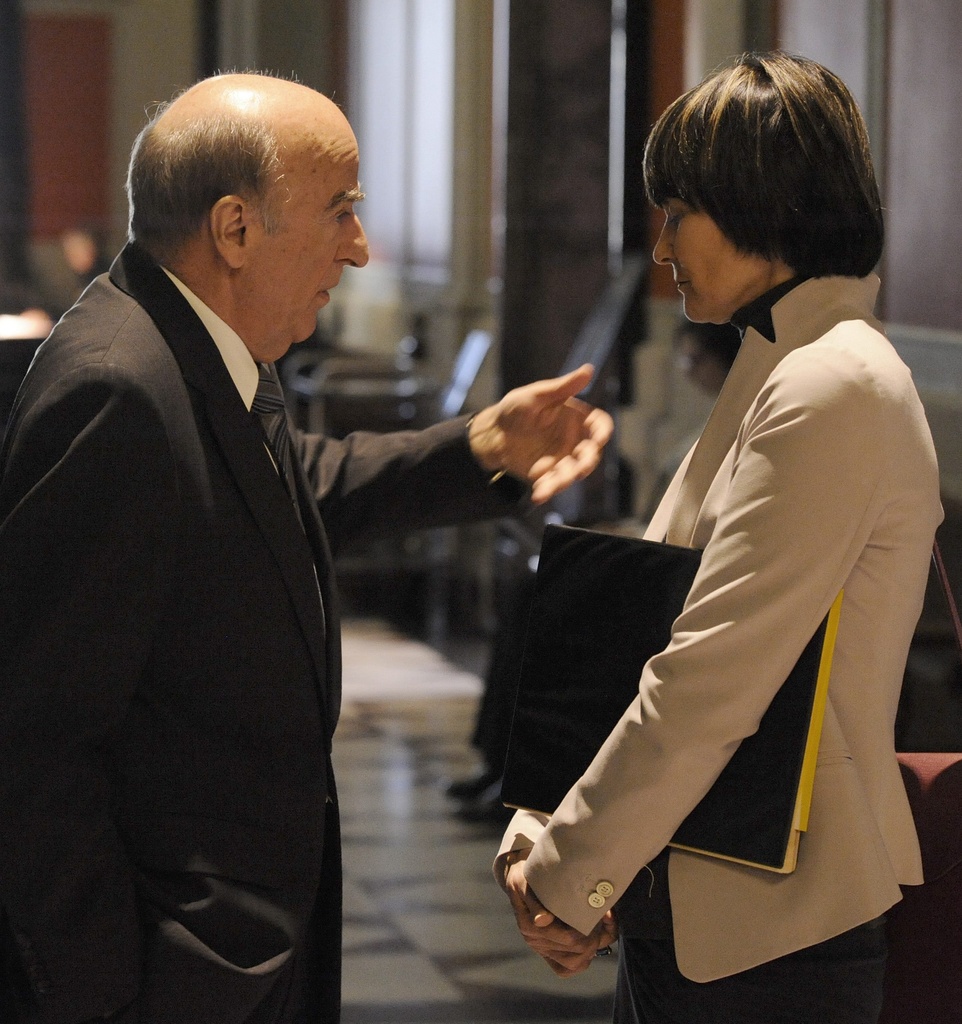
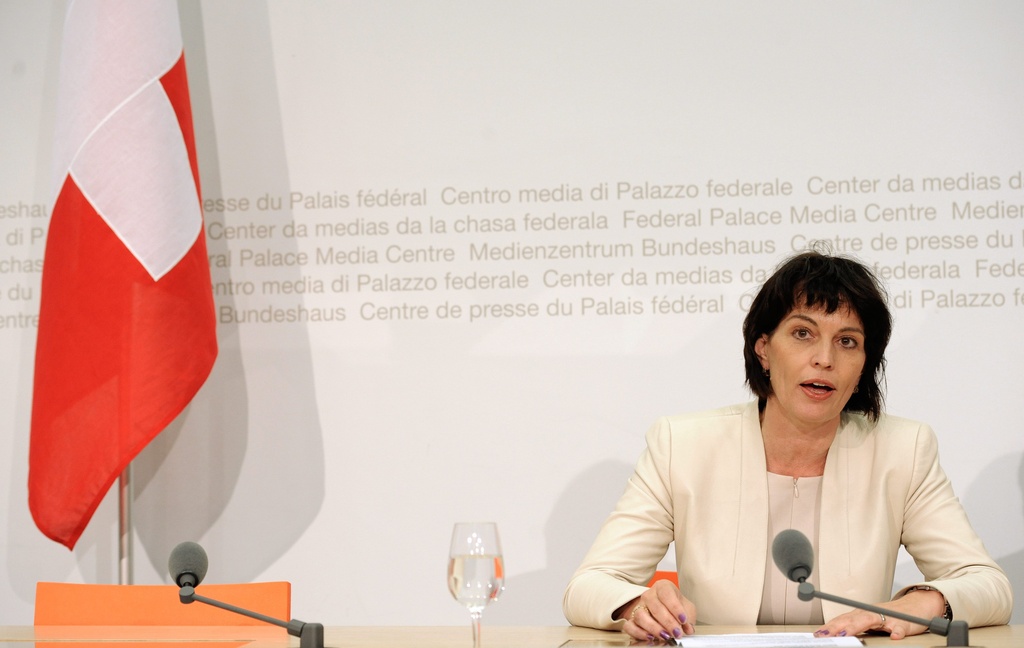
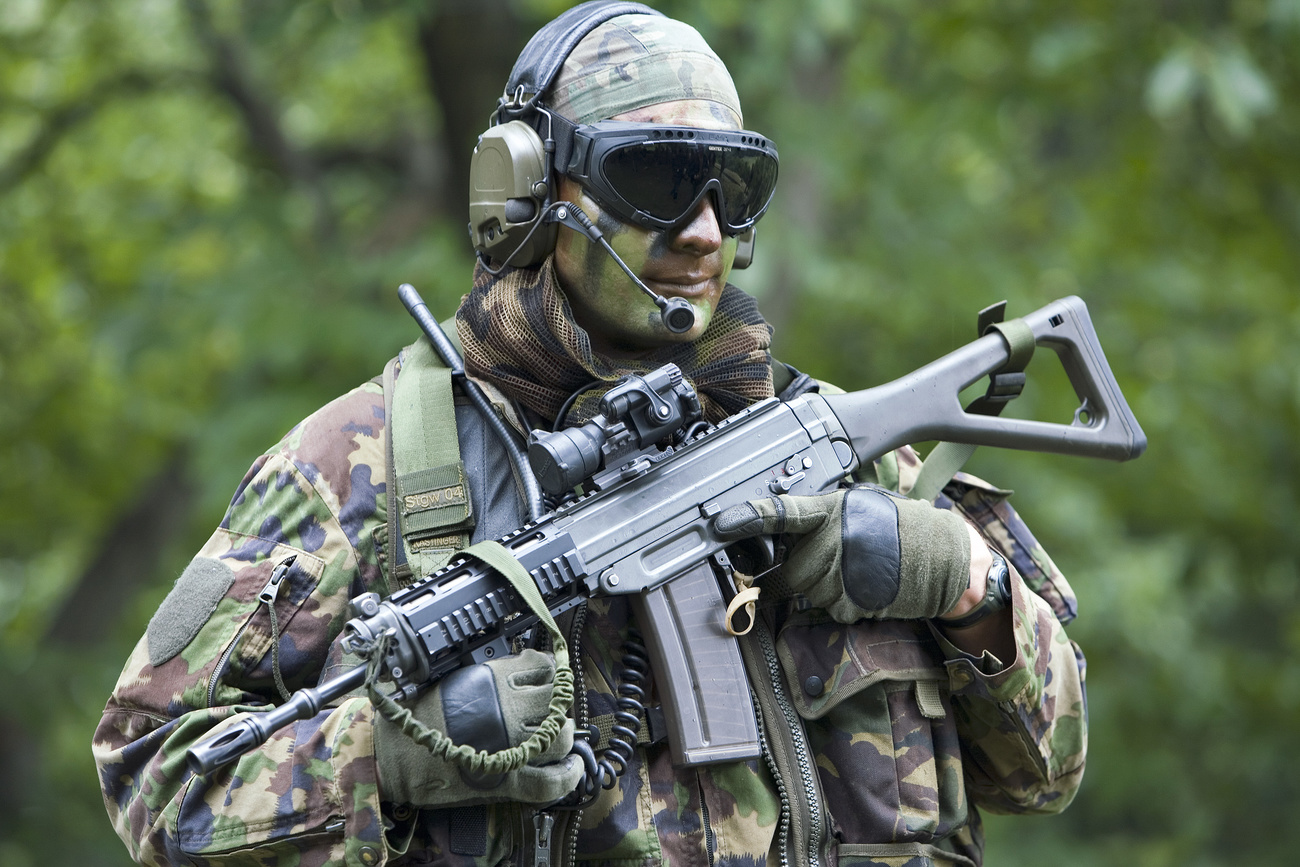
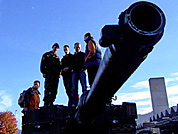
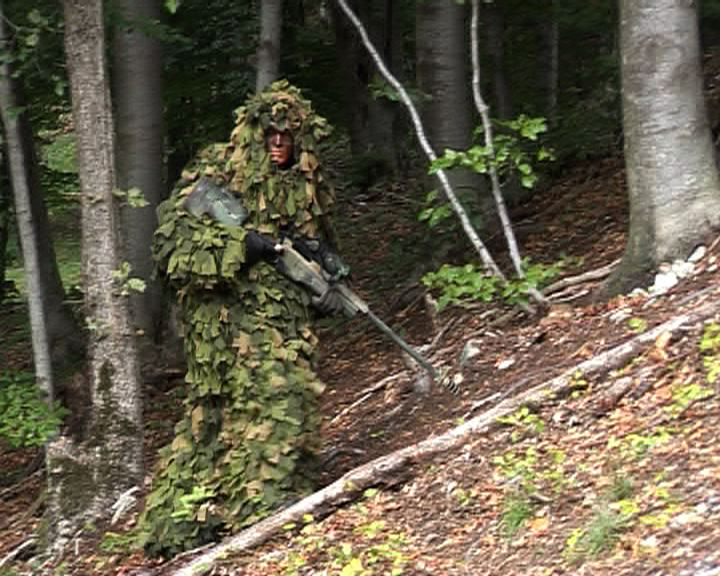
You can find an overview of ongoing debates with our journalists here. Please join us!
If you want to start a conversation about a topic raised in this article or want to report factual errors, email us at english@swissinfo.ch.